#aswatthaman
Text
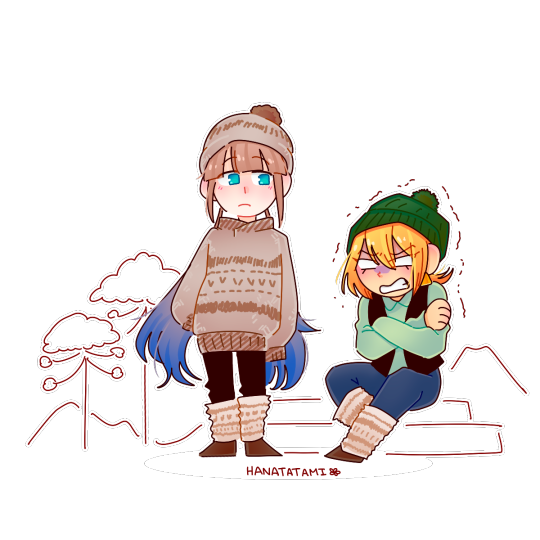

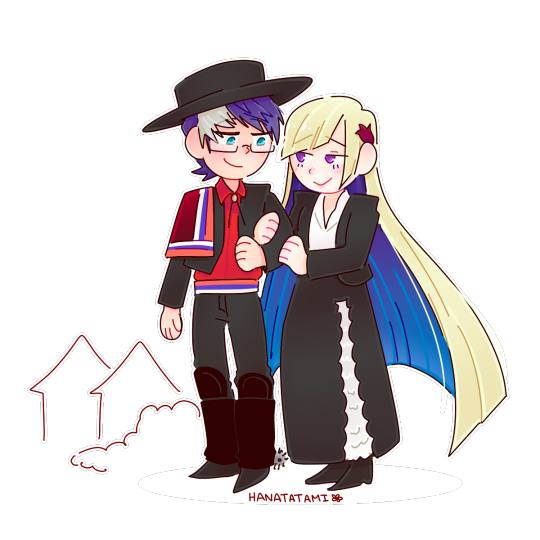
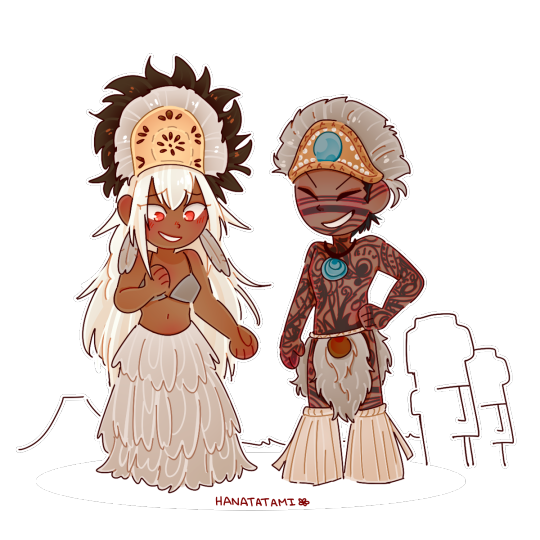
🥳🇨🇱🍖🎉
#a day late but still!#fgo#fanart#chile#18 de septiembre#fate captain nemo#fate jason#fate lakshmibai#fate angra mainyu#fate astolfo#fate aswatthaman#fate sigurd#fate brynhild#sigurd#brynhildr#angra mainyu#astolfo#aswatthaman#lakshmibai#nemo#jason#fate grand order#fate series
63 notes
·
View notes
Text
Vasudeva 28/769
Bhagavana revives a 6-month fetus.
And Arjuna also, repairing to
Dwaravati, brought away by force Subhadra. the sweet-speeched sister of Vasudeva, and returned in
happiness to Hastinapura. And he begat upon her a son named Abhimanyu endued with all
accomplishments and dear to Vasudeva himself.
[...]
Amongst them all, Abhimanyu was the perpetuator of the family. He married Uttara,
the daughter of Virata, who brought forth a dead child whom Kunti took up on her lap at the command
of Vasudeva who said, 'I will revive this child of six months.' And though born before time, having been
burnt by the fire of (Aswatthaman's weapon and, therefore, deprived of strength and energy he was
revived by Vasudeva and endued with strength, energy and prowess. And after reviving him, Vasudeva
said, 'Because this child hath been born in an extinct race, therefore, he shall be called Parikshit'. And
Parikshit married Madravati, thy mother, O king, and thou art born to her, O Janamejaya! Thou hast also
begotten two sons on thy wife Vapushtama, named Satanika and Sankukarna. And Satanika also hath
begotten one son named Aswamedhadatta upon the princess of Videha.
"Thus have I, O king, recited the history of the descendants of Puru and of the Pandavas. This excellent,
virtue-increasing, and sacred history should ever be listened to by vow-observing Brahmanas, by
Kshatriyas devoted to the practices of their order and ready to protect their subjects; by Vaisyas with
attention, and by Sudras with reverence, whose chief occupation is to wait upon the three other orders.
Brahmanas conversant in the Vedas and other persons, who with attention and reverence recite this
sacred history or listen to it when recited, conquer the heavens and attain to the abode of the blessed.
They are also always respected and adored by the gods, Brahamanas, and other men. This holy history
of Bharata hath been composed by the sacred and illustrious Vyasa. Veda-knowing Brahmanas and other
persons who with reverence and without malice hear it recited, earn great religious merits and conquer
the heavens. Though sinning, they are not disregarded by any one. Here occurs a sloka, 'This (Bharata)
is equal unto the Vedas: it is holy and excellent. It bestoweth wealth, fame, and life. Therefore, it should be listened to by men with rapt attention.'"
0 notes
Text
You have to crawl before you walk
- now although thou
- Drona and his
- Agni and Isa
- mail and banner
- eddies and elephants
- Brahman and I
- Duhsasana and Vikarna
- bows and arrows
- intelligence and Vrihaspati
- me and it
- backs and arms
- Virata and Vasava
- gold and pierced
- Gandharvas and Apsaras
- Arjuna yet Aswatthaman
- attack and defence
- Partha before they
- life how canst
0 notes
Text
Rakshasa
A Rakshasa is a mythological being in Hindu mythology. As this mythology influenced other religions, the rakshasa was later incorporated into Buddhism.A female rakshasa is known as a Rakshasi. The terms Asura and Rakshasa are sometimes used interchangeably. Rakshasas were most often depicted as ugly, fierce-looking and enormous creatures. Generally they could fly, vanish, and had Maya which enabled them to change size at will and assume the form of any creature.

If you think you have heard of this epic being, you probably dwelt in Dungeon and Dragons before.

Today, however we will focus on the Hindu version as I didn’t have enough time to research both Hinduism and Buddhism. Apologies, I will do a video on the Buddhist version as well.
In the world of the Ramayana and Mahabharata, Rakshasas were a populous race. There were both good and evil rakshasas, and as warriors they fought alongside the armies of both good and evil. They were powerful warriors, expert magicians and illusionists. Aside from its treatment of unnamed rank-and-file Rakshasas, the epics tell the stories of certain members of the "race" who rose to prominence, some of them as heroes, most of them as villains.

The Battle of Lanka
The Battle of Lanka pitted an army of Rakshasas under Ravana against an army of Vanaras, or monkeys, under Rama and Sugriva.

Ravana was the King of Lanka. He had ten heads and was the commander of the Rakshasas. He was the immortal enemy of Rama, the hero of the Ramayana. In the Mahabharata (Book III: Vana Parva, Section 271 ff.), the Sage Markandeya recounts the story of how Ravana kidnapped Rama's wife Sita and whisked her off to his stronghold Lanka. Rama, aided by the monkey King Sugriva and his army of monkeys, laid siege to Lanka, slew Ravana, and rescued Sita.
Vibhishana was Ravana's younger brother. He was beautiful, pious and assiduous in his religious observances. When Brahma granted him a boon, he asked never to swerve from the path of righteousness and to always be illumined by divine knowledge (Book III, Vana Parva: Section 273.) Vibhishana joined Rama in his campaign against Ravana and helped Rama's army to cross the ocean into Lanka (Section 281). When invisible Rakshasas infiltrated Rama's camp, Vibhishana caused them to become visible; this enabled Rama's monkey soldiers to destroy them (Section 283). After Rama's final victory over Ravana, the loyal Vibhishana was made king of Lanka and remaining Rakshasas (Section 289).
Kumbhakarna was another brother of Ravana; he was sometimes referred to as a Rakshasa because of his frightening appearance and size. Like Rakshasas, he had an enormous appetite and ate large quantities of food and meat. A fearsome warrior and master of illusion, he slept through most of the Battle of Lanka (having long before requested and received a gift of long-lasting sleep from Brahma). When Ravana awakened him with alarming news about the conflict, he arose and took the field. Upon marching out of the city, Kumbhakarna was immediately swarmed by Rama's monkeys; he just laughed and wreaked great mayhem amidst them. When the monkey king Sugriva attacked, Kumbhakarna grabbed him and started to drag him off. At that point Rama and his brother Lakshmana used arrows and a secret Brahmastra ("Brahma's weapon") to kill Kumbhakarna, dropping him "like a huge tree cleft in twain by a thunderbolt." (Ramayana, Book III: Vana Parva, Section 285.)

Other Rakshasas that are featured in the Ramayana include Kabandha, Tataka (sometimes called Taraka), Shurpanakha, Maricha, Subahu, Khara, Prahasta, Akshayakumara, Atikaya, and Indrajit - the most powerful son of Ravana.
In the Mahabharata
The Pandava hero Bhima was the nemesis of forest-dwelling Rakshasas who dined on human travellers and terrorized human settlements.
Bhima killed Hidimba, a cannibal Rakshasa. The Mahabharata (Book I: Adi Parva, Section 154) describes him as a cruel cannibal with sharp, long teeth and prodigious strength. When Hidimba saw the Pandavas sleeping in his forest, he decided to eat them. He sent his sister Hidimbi to reconnoiter the situation, and the young woman fell in love with the handsome Bhima, whom she warned of danger. Infuriated, Hidimba declared he was ready to kill not only the Pandavas but also his sister, but he was thwarted by the heroism of Bhima, who defeated and killed him in a duel.

Ghatotkacha, a Rakshasa who fought on the side of the Pandavas, was the son of Bhima and the Rakshasa Hidimbi, who had fallen in love with the hero and warned him of danger from her brother. Bhima killed the evil Rakshasa Hidimba. Their son's name refers to his round bald head; ghata means 'pot' and utkacha means 'head' in Sanskrit. Ghatotkacha is considered a loyal and humble figure. He and his followers were available to his father Bhima at any time; all Bhima had to do was to think of him and he would appear. Like his father, Ghatotkacha primarily fought with the mace. His wife was Ahilawati and his son was Barbarika.
In the Mahabharata, Ghatotkacha was summoned by Bhima to fight on the Pandava side in the Kurukshetra War. Invoking his magical powers, he wrought great havoc in the Kaurava army. In particular, after the death of Jayadratha, when the battle continued on past sunset, his powers were at their most effective (at night). After performing many heroic deeds on the battlefield and fighting numerous duels with other great warriors (including the Rakshasa Alamvusha, the elephant-riding King Bhagadatta, and Aswatthaman, the son of Drona), Ghatotkacha encountered the human hero Karna. At this point in the battle, the Kaurava leader Duryodhana had appealed to his best fighter, Karna, to kill Ghatotkacha, as the entire Kaurava army was near annihilation due to his ceaseless strikes from the air. Karna possessed a divine weapon, Shakti, granted by the god Indra. It could be used only once and Karna had been saving it to use on his arch-enemy Arjuna, the best Pandava fighter. Unable to refuse Duryodhana, Karna used the Shakti against Ghatotkacha, killing him. This is considered to be the turning point of the war. After his death, the Pandava counselor Krishna smiled, as he considered the Pandava prince Arjuna to be saved from certain death, as Karna had used the Shakta divine weapon. A temple in Manali, Himachal Pradesh, honors Ghatotkacha; it is located near the Hidimba Devi Temple.

Bakasura was a cannibalistic forest-dwelling Rakshasa who terrorized the nearby human population by forcing them to take turns making him regular deliveries of food, including human victims. The Pandavas travelled into the area and took up residence with a local Brahmin family. Their turn came when they had to make a delivery to Bakasura, and they debated who among them should be sacrificed. The rugged Bhima volunteered to take care of the matter. Bhima went into the forest with the food delivery (consuming it on the way to annoy Bakasura). He engaged Bakasura in a ferocious wrestling match, and broke his back. The human townspeople were amazed and grateful. The local Rakshasas begged for mercy, which Bhima granted them on the condition that they give up cannibalism. The Rakshasas agreed and soon acquired a reputation for being peaceful towards humans. (Book I: Adi Parva, Sections 159-166.)
Kirmira, the brother of Bakasura, was a cannibal and master illusionist. He haunted the wood of Kamyaka, dining on human travellers. Like his brother before him, Kirmira also made the mistake of fighting the Pandav hero Bhima, who killed him with his bare hands (Book III: Varna Parva, Section 11).
Jatasura was a cunning Rakshasa who, disguised as a Brahmin, attempted to steal the Pandavas' weapons and to ravish Draupadi, wife of Arjuna. Bhima arrived in time to intervene, and killed Jatasur in a duel. (Book III: Varna Parva, Section 156). Jatasur's son was Alamvush, who fought on the side of the Kauravas at Kurukshetra.
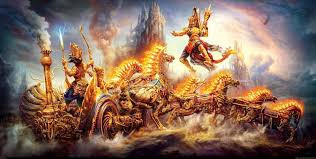
Rakshasa heroes fought on both sides in the Kurukshetra war.
Alambusha was a Rakshasa skilled at fighting with both conventional weapons and the powers of illusion. According to the Mahabharata, he fought on the side of the Kauravas. Arjuna defeated him in a duel (Book VII: Drona Parva, Section 167), as did Arjuna's son Abhimanyu (Book VI: Bhishma Parva, Section 101–102). But Alamvusha in turn killed Iravan, Arjuna's son by a Nāga princess Ulupi, when the Rakshasa used his powers of illusion to take on the form of Garuda. Alamvusha was also defeated by Bhima (Book VII: Drona Parva, Section 107). He was slain by Bhima's son, the Rakshasa Ghatotkacha (Book VII: Drona Parva, Section 108).
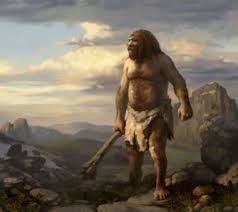
In Indonesian and Malay, raksasa now means "giant", "gigantic," "huge and strong," or "monster" in colloquial usage. Indonesian and Malay are closely related languages with significant Sanskrit influence.
13 notes
·
View notes
Text
Once you realize you are your own biggest obstacle, nothing can hold you back
RINGS AND NECKLACES
MAIL AND TURBANS
DRONA AND BHISHMA
ARJUNA YET ASWATTHAMAN
SANTANU OR KRISHNA
GARLANDS AND ORNAMENTS
BLOOD AND FLESH
PARTHA AND DISCHARGED
SHAFTS AND ARMS
0 notes
Text
Gory bomb cutter combination (CONTRAOCTAVE)
WARRIORS FOR ITS
BHISHMA AND ARJUNA
ME AND IT
ADVERSARY BUT ARJUNA
FOREST THOUGH PROTECTED
SOLDIERS FOR ITS
PARTHA BEFORE THEY
EYES YET DEPRIVED
SIVI AND YAYATI
CARS AND HORSES
RUDRA AND KUVERA
THEM SO HIS
GARLANDS AND ORNAMENTS
ME AND MY
ARJUNA YET ASWATTHAMAN
PAULOMAS AND KALAKHANJAS
SILVER AND COPPER
BHISHMA AND GRANDSIRE
RAGHU AND BHANU
SUPRATARDDANA AND ASHTAKA
VIRATA AND VASAVA
DROOP AND MY
DRONA AND BHISHMA
MEN AND FOREMOST
CELESTIALS AND DAITYAS
0 notes
